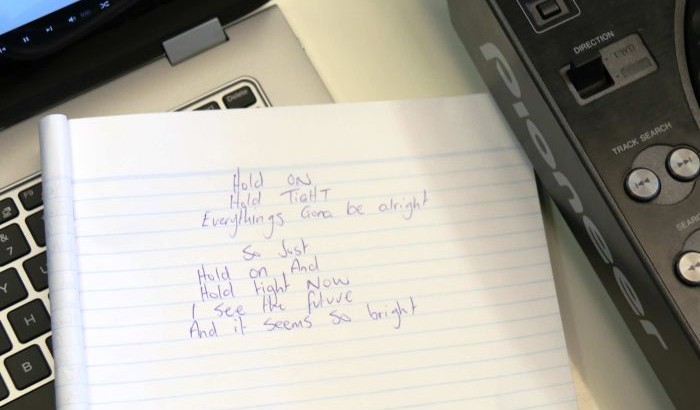When the Wandoo Reintegration Facility, a minimum security prison facility in Western Australia, opened, they set up a unique music program to help ensure that they didn’t see any familiar faces back behind bars. So far, it’s proving to be working with the re-offending rates within the facility sitting at less than half the state’s average.
The program is called Rap’N’Radio and is run by Scott Griffiths, also known as MC Optamus, from the group Downsyde. Griffiths teaches participants in the program about “Aussie hip-hop”, facilitates writing sessions and mentors participants. Soon enough, program participants will be recording a CD which will be produced by Griffiths.
It is thought that the benefit of the Rap’N’Radio program comes from the process of self-reflection that the participants go through. “One of the transitions you see in the program is guys writing primarily what we call yard talk, or tough ego-driven lyrics, but then after a certain amount of time they write reflective lyrics. They’re looking at the fact that they’ve separated from their children, separated from their partners and they also look at the journey here and the journey out.” As one resident (as they are called a Wandoo) said: “For me it’s like talking to somebody and getting problems off my chest….It’s about the expression and I feel so much better after. They’re personal lyrics about my time in here and my family that have supported me through it and are waiting for me. That it hasn’t been all for nothing.”
Despite the negative rap that hip-hop still seems to endure, that a program such as Rap’N’Radio is successful in it’s aim is not surprising. Griffiths, who has done a lot of outreach work, says that the program is about engagement and self-expression.”Once people get drawn into it they realise it supports people being able to be expressive and it doesn’t have to be negative.”
It isn’t the first, or last, of it’s kind. Recently Kendrick Lamar has announced his “Be Alright” Scholarship, which encourages students at a New Jersey high school to demonstrate some of the positive messages and impacts of hip-hop. Meanwhile, Danny Brown and RZA are bringing poetry and chess to classrooms to promote positive self expression.
Programs such as Rap’N’Radio have been proven to be successful time and time again. Outreach and youth workers who run hip-hop programs outside of that prison environment agree that hip-hop culture (not just music, but dance, graffiti and everything else that comes with it) is often unfairly thought of as negative, aggressive and disrespectful. In reality, it works to promote social inclusion and connectivity. It has opposite outcome of what many people still believe listening to and engaging with hip-hop results in: violence and incarceration. Having worked in this environment in the past, I can agree that there are many positives to such programs, but I say so while acknowledging that they are still lacking in a few fundamental areas.
One of the biggest problems with programs run to engage young people in hip-hop is that by their very nature, they tend to exclude large numbers of the population, which is a huge drawback for everyone. In my time working with youth music programs, I have encountered facilitators who have spoken of the many young women and members of the LGBTQI community who feel excluded from hip-hop programs. This was despite the fact that they were created to cater to everyone and anyone who wanted to participate. Most often, they said the reason they felt unwelcome to participate was due to their gender and/or sexual identity.
This is a problem doesn’t just affect those who feel excluded. By keeping the door closed to these large and talented sections of the community, the young men who are involved in such program miss out on socialising, engaging and connecting with people from a wide range of backgrounds and cultures.
Working towards reducing the re-offending rates is no doubt an incredibly positive thing, but there also needs to be more done before things get to that point. More than that, there needs to be more done to include the minorities who are left behind.

